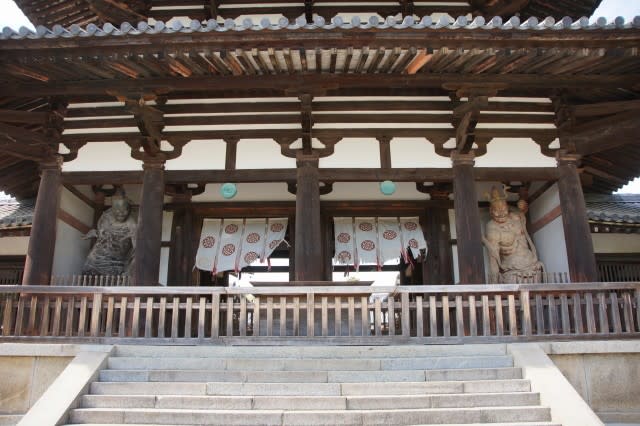The following is from Hideo Tamura's serial column, which brings the monthly magazine Hanada on sale to a successful opening.
He is one of the few genuine economic commentators.
It is a must-read article not only for the Japanese people but also for people around the world.
Biden's sanctions against China are a paper tiger
To borrow a phrase from Mao Zedong's words to the United States during the Cold War, the U.S. Biden administration's encirclement diplomacy against China is a "paper tiger.
Because it turns its back on financial sanctions that could destroy the Xi Jinping regime.
The European Union (E.U.), the United Kingdom, and other countries have agreed to sanctions against China for the horrific human rights violations in the Xinjiang Uyghur Autonomous Region, but mainly for freezing the assets of the autonomous region's top public security officials.
The increased monitoring to prevent the distribution of products from forced labor in the autonomous region is only based on the ban on cotton imports by the previous Trump administration.
On March 12, Biden called for an online meeting between the Quad, Japan, the U.S., Australia, and India, which called for "free navigation in the Indo-Pacific," but avoided mentioning China or the South China Sea by name.
It was not supposed to resonate with the Chinese, who value substance over the name.
The response from Beijing's Ministry of Foreign Affairs was that the Quad is a meaningless organization for discussion.
Following that, on the 18th, the first meeting of the top U.S. and Chinese diplomatic authorities was held in Alaska. U.S. Secretary of State Antony Blinken said, "China's actions threaten the rule-based order to maintain world stability." When accused, Yang Jiechi, a political bureau member of the Communist Party, counterattacked that "the United States is using military power and financial supremacy to overextend the scope of national security,"
In my view, the Chinese side has unintentionally exposed its weakness because the weak point of the Xi regime is finance.
However, the Biden administration does not seem to care.
China's unique dollar-based monetary and financial system is highly rigid.
The People's Bank of China, which the Party controls, issues yuan funds to finance economic growth in response to dollar inflows.
When foreign exchange reserves are expanding due to trade balance surpluses and increased investment in China by foreign companies, quantitative monetary expansion becomes possible, facilitating rapid growth. Still, if the foreign exchange level does not increase, the bank cannot issue additional yuan, lowering the economy's growth rate.
The foreign exchange level has barely increased since 2017. It is due to massive capital flight.
The ratio of foreign exchange to the People's Bank of China's fund issuance was over 100% until the fall of 2012 when Mr. Xi took office as Party General Secretary. Still, it fell to the 65% level in February.
Suppose the dollar's backing becomes any weaker. In that case, it could jeopardize confidence in the yuan both inside and outside China, so the Xi administration cannot print money even if it wanted to.
The growth rate of People's Bank of China money issuance was only -2% YoY in 2018 and 2% YoY last year during the Corona recession, both well below nominal GDP growth.
If it is not providing sufficient funds for growth, the Xi administration is tightening monetary policy during the recession.
What the Xi administration has forced upon itself in its predicament is the complete control of the international financial center Hong Kong.
The Hong Kong dollar, which can freely exchange for the U.S. dollar, is the cornerstone of the Hong Kong financial market. Most of the foreign currency needed by the Chinese economy is concentrated for settlement.
It can exchange the Renminbi into Hong Kong dollars without limit in Hong Kong.
In other words, the Renminbi can be easily replaced by the U.S. dollar in Hong Kong.
Since the summer of 2007, the Xi administration has been suppressing pro-democracy demonstrations and stripping Hong Kong of its "high degree of autonomy." On June 30, 2008, it enacted the Hong Kong Law on the Maintenance of National Security (the National Security Law), culminating its efforts.
In the meantime, it has been listing more and more Chinese companies on the Hong Kong stock market, and in February this year, the market capitalization of Chinese companies in the Hong Kong market swelled by US$2 trillion from the previous year, raising their share of trading to 90%. The Xi administration has hijacked the Hong Kong market, attracting Western financial capital to pour dollars into it.
The People's Bank of China will eventually siphon off the foreign currency, allowing for economic expansion and foreign expansion.
The former Trump administration must have seen through this intention.
In November 2007, it enacted the Hong Kong Human Rights and Democracy Law, which includes a provision that prohibits the exchange of Hong Kong dollars for U.S. dollars.
In addition, in response to the Xi administration's National Security Law, Trump enacted the Hong Kong Autonomy Law on July 14, 2008, paving the way for financial sanctions against Chinese central banks.
In January, Trump left office.
On March 30, the Xi administration forced Hong Kong to revise its electoral system, extinguishing Hong Kong's democracy and autonomy.
The Biden administration has not attempted to counter this with financial sanctions.
The Xi administration must see the Biden administration as a reincarnation of the Obama administration, which was verbally condemned but did not take effective action.
Just as Mr. Xi had hoped, Wall Street and other Western financial capitals flood into Hong Kong.
Amid the corona wreck, surplus funds continue to swell with the quantitative easing of global finance flow into mainland China via Hong Kong. Last year's investment in China from overseas was the largest ever for both direct and financial-related investment. It increased on the scale of 1 trillion dollars.
Foreign currency supports military expansion.
With the invasion of the Senkaku Islands in Okinawa Prefecture and Taiwan, China's growing threat is only accelerating.














